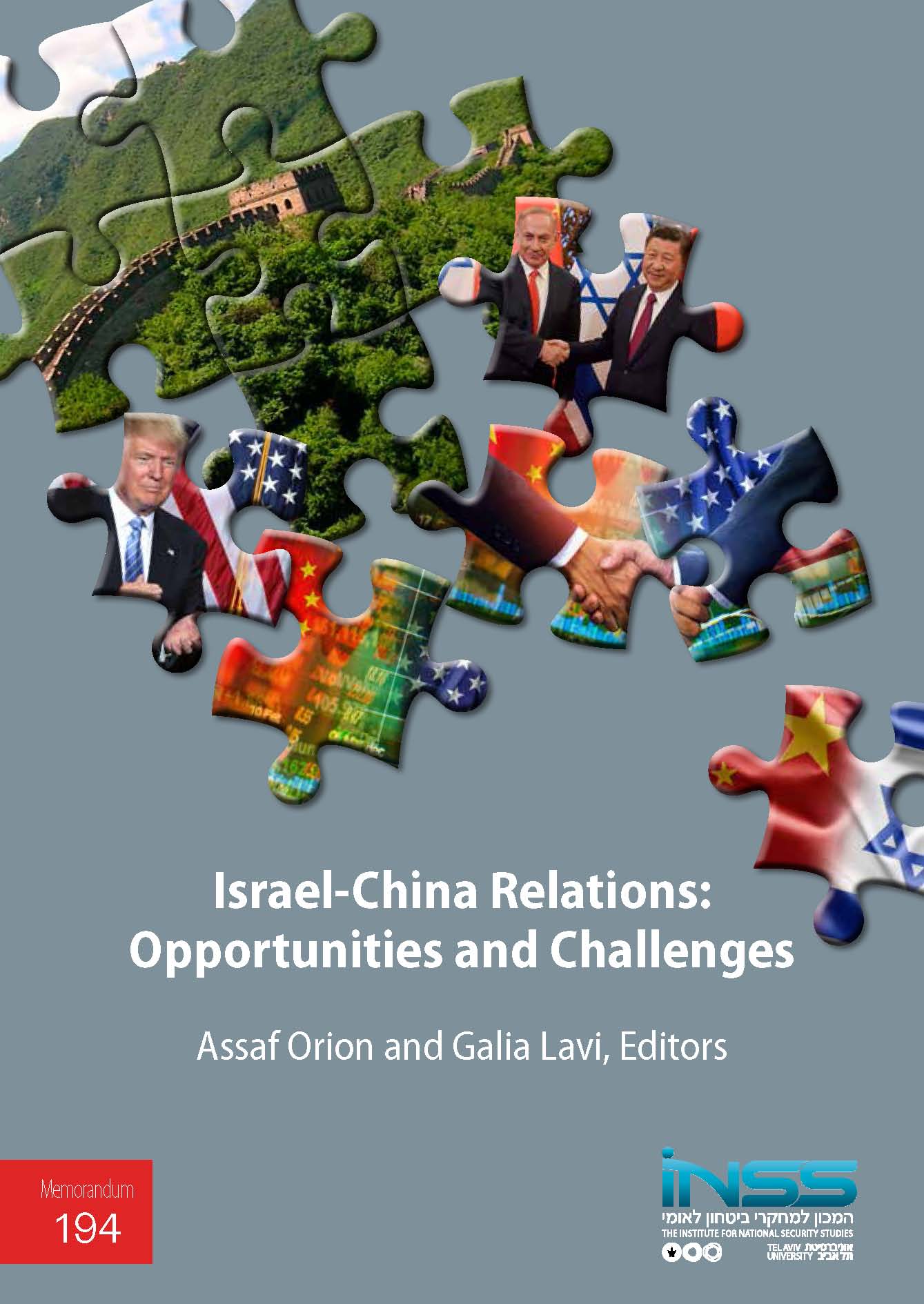Publications
Memorandum No. 194, INSS, August 2019

This article analyzes the economic relations between China and Israel, from the establishment of diplomatic relations in 1992 until the present. On the basis of this analysis, questions regarding the future of these relations and possible directions for development will be raised, and a framework for preferred relations will be suggested. A central question is: can Israel-China relations develop in directions that are desirable and beneficial for Israel’s national economic interest, and if so, how? Since the establishment of diplomatic relations between Israel and China 27 years ago, the Chinese economy has undergone sweeping changes that transformed it from an underdeveloped country into the second largest economic superpower in the world. Today, China continues to grow and develop at a fast rate, and according to estimates, by 2032 it will be the largest economy in the world, alongside other Asian countries such as India, which are also expected to be leading economies.1 China’s impressive growth, steady and ongoing over the course of many years, has been accompanied by economic reforms to transform China from an agriculture-based economy to an industrialized economy, and from an export-based economy to a services based economy. Under Mao’s reign, China’s markets were closed, but with the beginning of the reforms China became a source of cheap labor and an attractive destination for foreign investors. However, today Chinese exports are only one of the country’s growth engines, and most of its production is directed mainly toward the domestic market. China’s principal growth engines are now domestic consumption; domestic investment, mainly in infrastructure; and Chinese investment around the world, which is meant to ensure the supply of raw materials for Chinese industry and the developing domestic market.
These structural economic reforms led to changes in the character of the Chinese population. Early in the era of reforms in 1978, only 17.9 percent of the population lived in urban areas; today 56.7 percent of China’s population is urban.2 The reforms also brought about important changes to China’s foreign policy, which led to a change in China’s standing and activities in the international arena, and mainly in its economic relations with other countries. Indeed, China, which was and remains a destination for foreign investment, has now become a prominent and important player throughout the world. Israel likewise underwent sweeping changes over the past 40 years. Economically, Israel changed from a centralized agriculture-oriented economy, in which the government had a central role, to a free market service-oriented economy. The State of Israel has succeeded in leveraging the results of the massive investment in education and in research and development in the 1960s and 1970s, and in branding itself as the “start-up nation.” However, the changes that the Israeli and Chinese economies underwent are incomparable qualitatively, and even more so, quantitatively – despite the fact that the similarities and differences in the respective economic processes is a frequent topic between Chinese and Israeli professionals.


